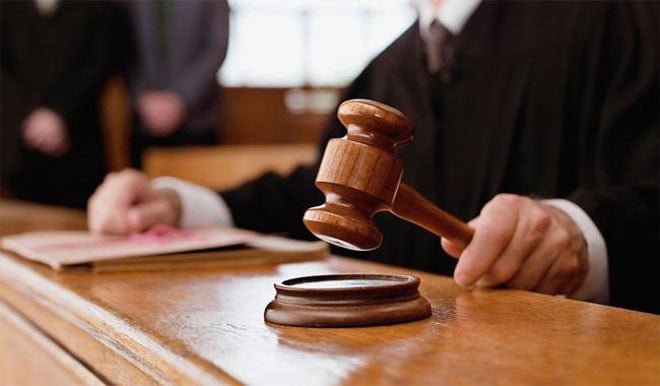
Legal experts build a case for the discontinuation of military courts, as they deny the basic right to fair trial

The two-year period of military courts, set up to try militants, ended last week amid serious concerns raised by the civil society about their establishment and functioning.
Meanwhile, the federal government is also sending mixed signals for the continuity of these courts through a constitutional validation. A draft of the law is said to be under consideration.
The debate is still on: whether Pakistan should have military courts for exclusive trials of terrorists in a country affected by militancy for the past one-and-a-half decade or should the militants be tried in civil courts?
"We should not have military courts. Instead, we should improve our current criminal justice system," Nasir Aslam Zahid, a former judge of Supreme Court of Pakistan, says, adding, "Only education and a strong political will to overhaul the criminal justice system and parliament will refine the society."
He further adds that in a civilised society, where there is education and rule of law, there are no military courts. "If we continue this way we will become a dark country like Senegal in Africa, and I can see this as writing on the wall".
He fears a bloody revolution after some decades to correct the system.
Former senator and a senior leader of the ruling Pakistan Muslim League Nawaz (PML-N), Zafar Ali Shah, opposes the concept of military courts. "I have been against the setting up of these courts from day one. We should follow the normal course of law to try civilians and terrorists, and improve the standards of investigation and prosecution."
Military courts were established in January 2015, after amending the constitution to empower the army to try civilians in 11 military courts. These courts were set up as part of the implementation strategy of country’s National Action Plan (NAP) to counter terrorism and militancy. Point 2 of the state-devised 20-point agenda under the NAP clearly calls for setting up special trial courts under the supervision of the army with a limited period of two years. The period ended on January 6, 2017.
Inter Services Public Relations (ISPR) officials and National Counterterrorism Authority (Nacta) reports say as many as 274 cases were referred by the federal government and provincial apex committees to the military courts in the past two years. Military courts awarded death sentences to as many as 161 people, while 113 were sent behind bars, mostly for life.
A military court recently awarded a death sentence to former spokesman for Swat-based Taliban, Muslim Khan, and seven other militants.
Last week, Sindh apex committee agreed to send nine more cases to the military courts, while Counter-Terrorism Department (CTD) Sindh recommended forwarding 31 cases -- many of target killings of prominent persons and attacks on military. The apex committees, with a supervisory role in implementation of the NAP, function at the federal and provincial levels, and comprise civil and military representatives.
In August 2015, the Supreme Court dismissed many constitutional petitions against the establishment of these controversial military courts in a majority vote. The SC, however, maintained all decisions of military courts would be subject to judicial review by the appellate courts. Following the course, the SC on Aug 29, 2016 dismissed appeals of 16 convicts of military courts.
Military courts in Pakistan have always remained controversial. They were introduced the first time in 1953 after the army took over to control the anti-Ahmadi riots. Later, in 1958, Field Martial Ayub Khan established military courts, followed by General Yahya Khan in 1969 and then Ziaul Haq in 1977. In mid-1990s, Nawaz Sharif also set up special military courts in Karachi to control ethnic riots but, later, the SC dismissed these courts.
Human rights bodies oppose such courts. A global human rights group International Commission of Jurists (ICJ) in its latest statement urged Pakistan to stop these military courts. They advised the country to not extend legal provisions that empower such courts to try civilians for terrorism-related offence, terming such trials "disastrous for human rights in Pakistan".
The ICJ viewed the trials in military courts as "secret, opaque that violate even basic right to fair trial -- and don’t do anything to protect people from acts of terrorism." The ICJ urged Pakistan not to extend the 21st Amendment and ensure that all counter-terrorism laws and procedures be in accordance with Pakistan’s human rights obligations.
"There is no need to separate judicial system and procedure through these speedy courts because without overhauling the whole system and feeling a collective responsibility such isolated attempts like military courts cannot create a deep impact," says Nasir Aslam Zahid.